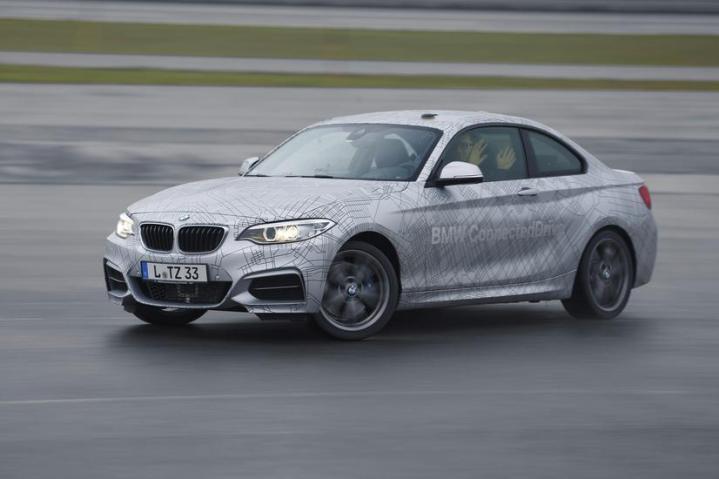
Car and tech companies are working hard to prove that autonomous vehicles are safer and more responsible than humans. BMW apparently didn’t get that memo.
At the 2014 Consumer Electronics Show, BMW unveiled ActiveAssist, a limited autonomous-driving system that can take control of a car in adverse situations. That means the BMW 2 Series ActiveAssist prototype just might be the world’s first self-drifting car.
However, the goal of ActiveAssist isn’t to make robotic cars as irresponsible as the humans they’ll replace, it’s to make driving at the limit safer.
BMW says the system can intervene in situations like hard cornering, abrupt lane changes, and hydroplaning to bring the car back into line, while driver presumably holds on for dear life.
In that respect, ActiveAssist may just be the next logical step beyond today’s electronic driver aids, which already take a lot of the work away from the driver. It might also be easier to sell autonomous driving as an emergency-only backup to skeptical humans.
Like other semi-autonomous systems currently on the market or in testing, ActiveAssist relies on hardware and sensors that are already available.
For speed control, ActiveAssist can brake individual wheels, which also has the effect of nudging the car back into line. The system can also steer a car, including counter steering and plying brake force to counteract oversteer and avoid spins.
BMW did not say when ActiveAssist will be offered on a production car, but it did say the system was in the late stages of development, and that it could form a stepping stone to a fully-autonomous car.
If the system does make it to showrooms, it could provide drivers with a wider safety net, all while getting people used to the idea of a car that drives itself. In the future, BMW may still make the “Ultimate Driving Machine”, but with an emphasis on the machine.
Editors' Recommendations
- Officers confused as they pull over an empty self-driving car
- Waymo’s self-driving cars can’t get enough of one dead-end street
- To reach level 4 autonomy, these self-driving cars head to winter boot camp
- Lockdown couldn’t keep Waymo from testing self-driving cars … in a fake city
- Tesla ‘full self-driving’ option to get a price bump, Elon Musk says


